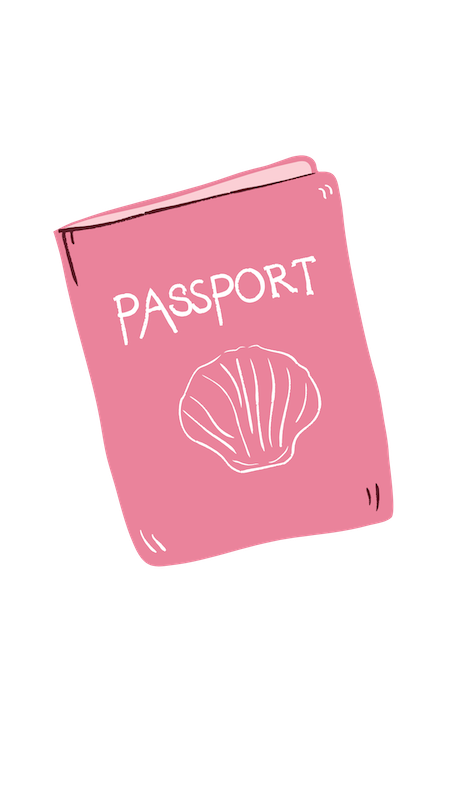
When you’re starting a new language, the hardest part is knowing what to say first.
Should you begin with the alphabet? Numbers? Greetings? Or just jump into full sentences?
If you ask us, the best way forward is to start with the stuff you’ll actually use. Little everyday scripts: mini-scenes made of short lines you can rehearse out loud. That way, when you’re in a café, shop, or train station, the words come naturally.
Here are ten essential script templates to get you started. Note, the following examples are written in English, but think of them as inspiration:
That’s the magic of rehearsal: making the language yours, step by step.
💡 Pro Tip: Make It Personal
These example scripts are just templates. The more you make them about your life, the faster they’ll stick.
The more relevant your scripts are to you, the easier they are to remember... and the more natural they’ll feel in real conversations.
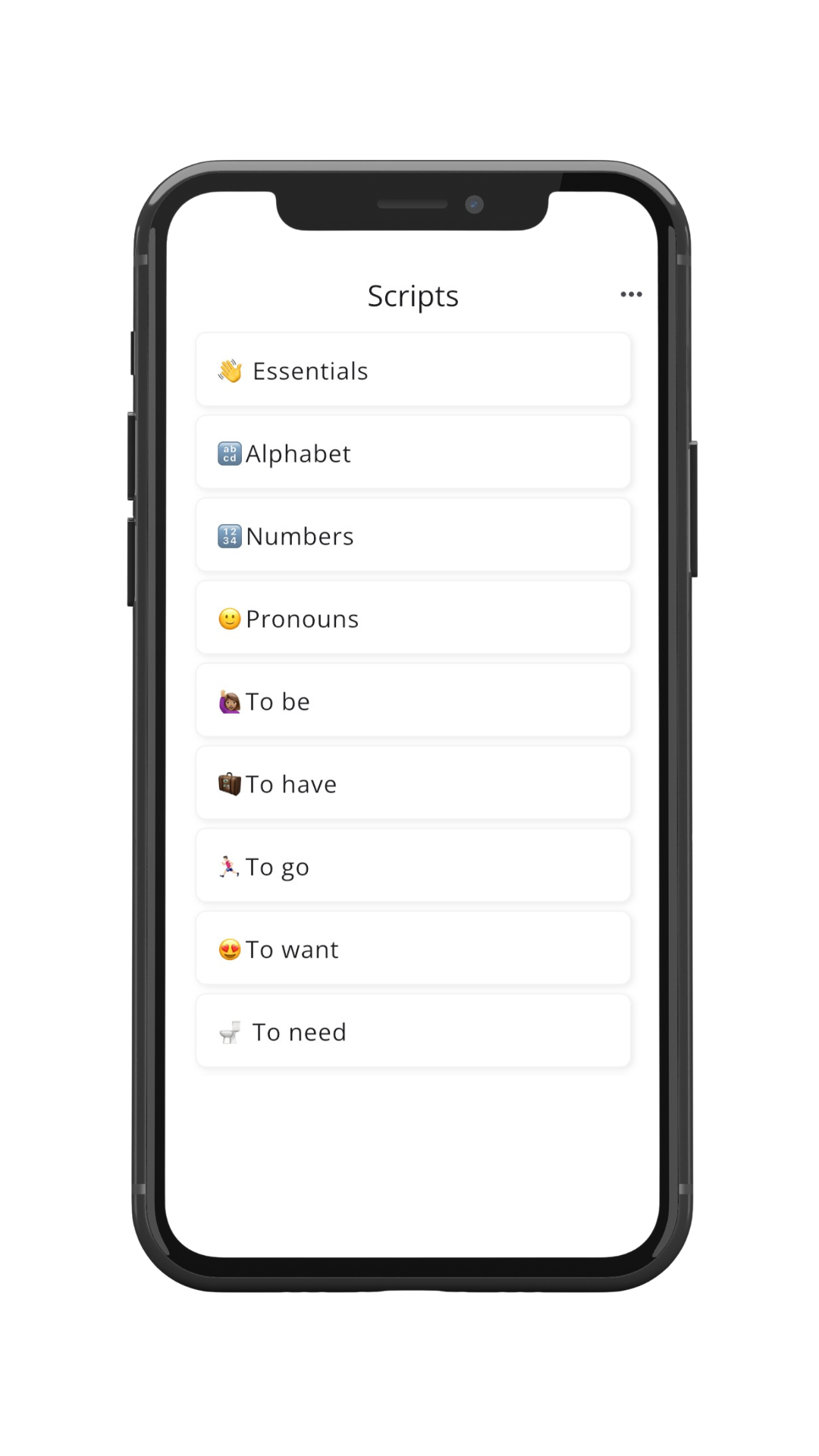
👋🏼 Essentials (greetings & politeness → quick win, emotional hook)
🔤 Alphabet (foundation → spelling names, emails)
🔢 Numbers (everyday counting → prices, time)
🙂 Pronouns (who’s speaking)
🏃🏽♂️ Most Common Verbs (engines of sentences)
🍜 Ordering Food & Drink (first big real-life scenario)
🛍️ Shopping
🚂 Train Station
💖 Social Glue
🎯 Personalised Script Ideas

If you are starting from Zero, you want to learn these phrases. Even if you don’t know anything else, you can say hello, thank you, and goodbye, and that’s enough to start connecting.
Hello
Yes
No
Pardon
Goodbye
Please
Thank you
Excuse me
Sorry
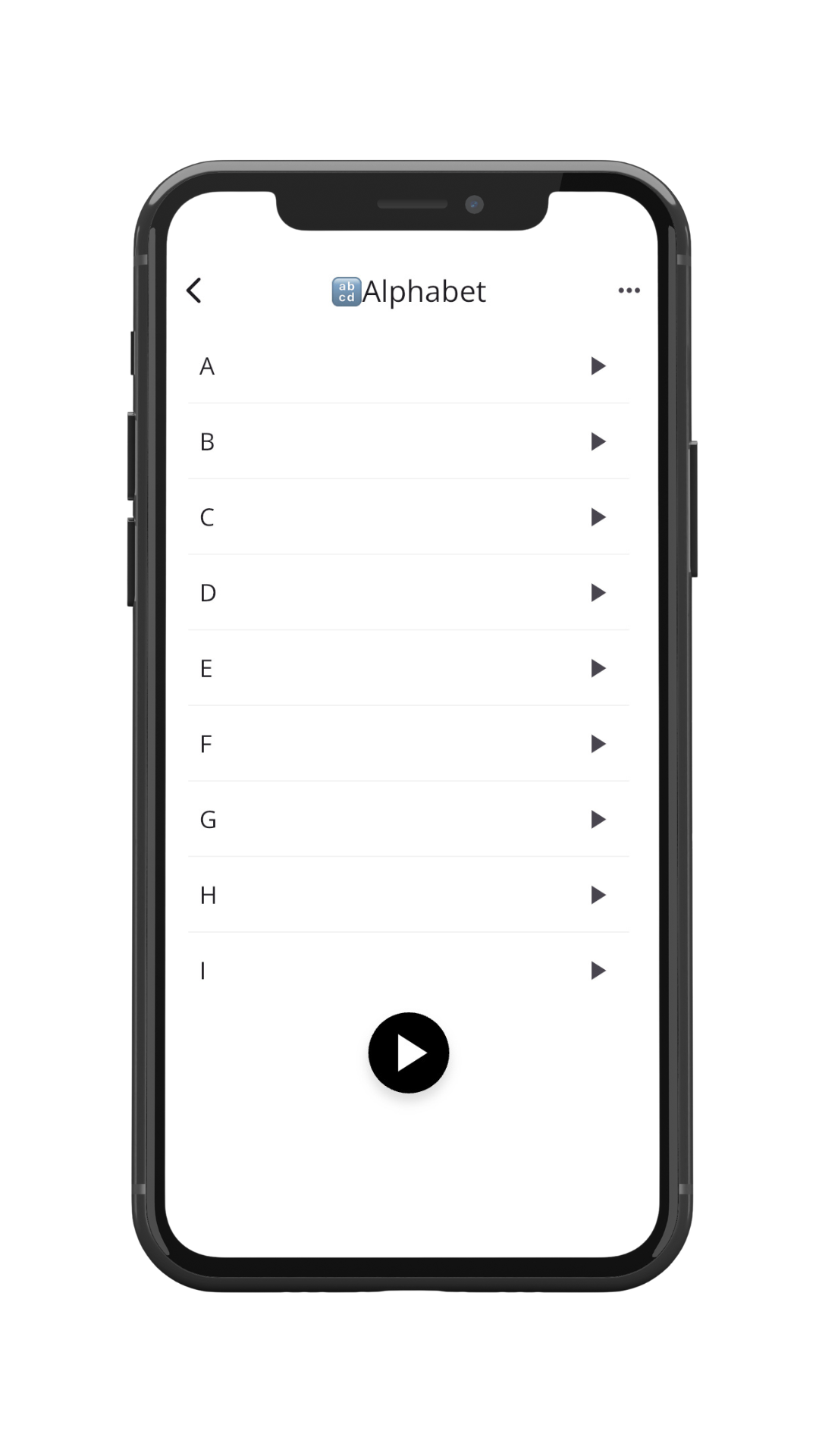
This is the building block of every language. If you can pronounce each letter, you’ll save yourself endless frustration. Plus when you say phrases, you'll sound a lot smoother.
A, B, C, D, E, F, G, H, I, J, K, L, M.
N, O, P, Q, R, S, T, U, V, W, X, Y, Z.
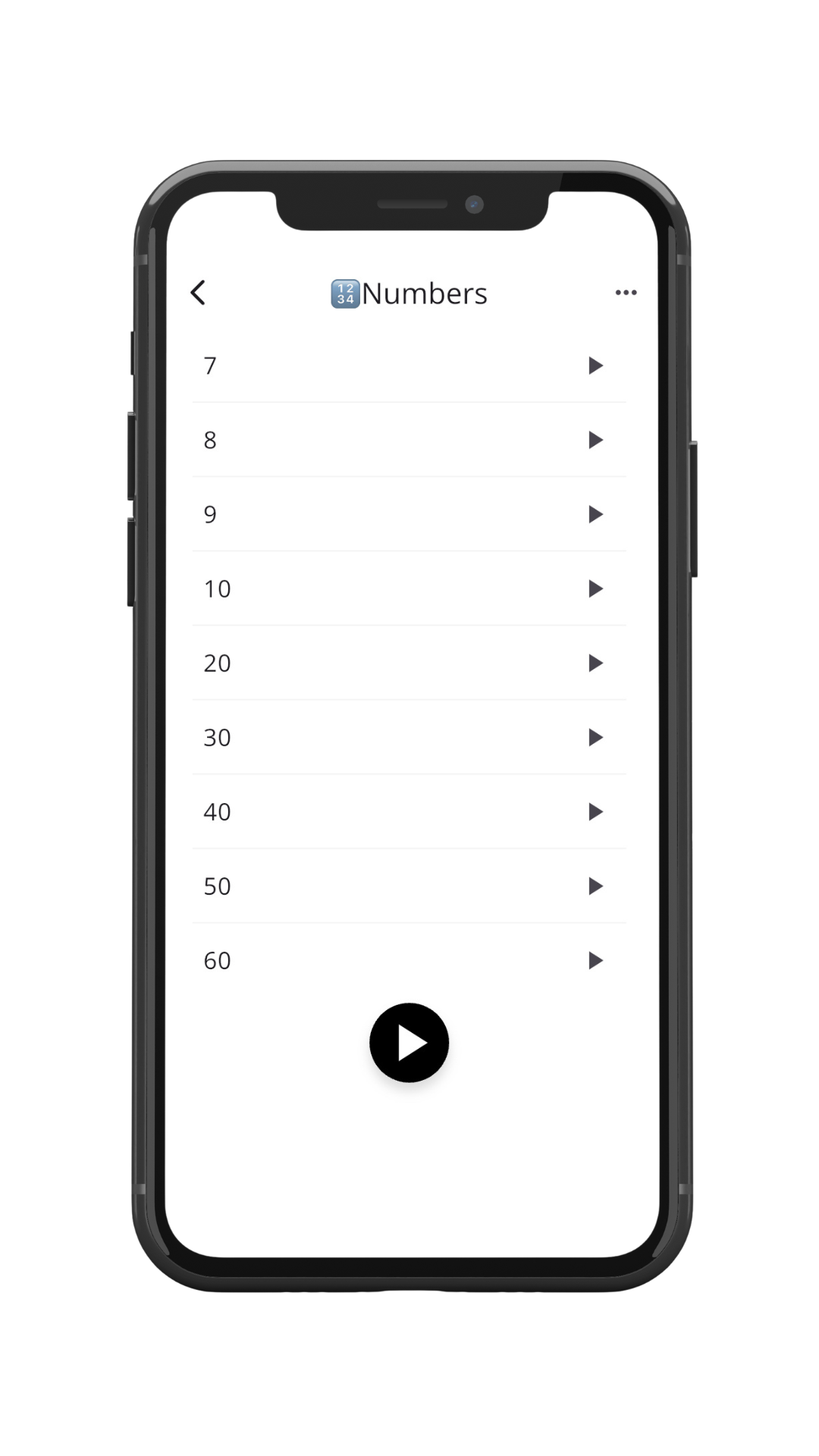
Numbers show up everywhere: prices, times, dates. If you can count, you’ll unlock a whole new world of everyday conversations, from ordering at a café to catching the bus on time!
One, two, three, four, five, six, seven, eight, nine, ten.
Eleven, twelve, thirteen… nineteen, twenty.
Ten, twenty, thirty, forty… ninety, one hundred.
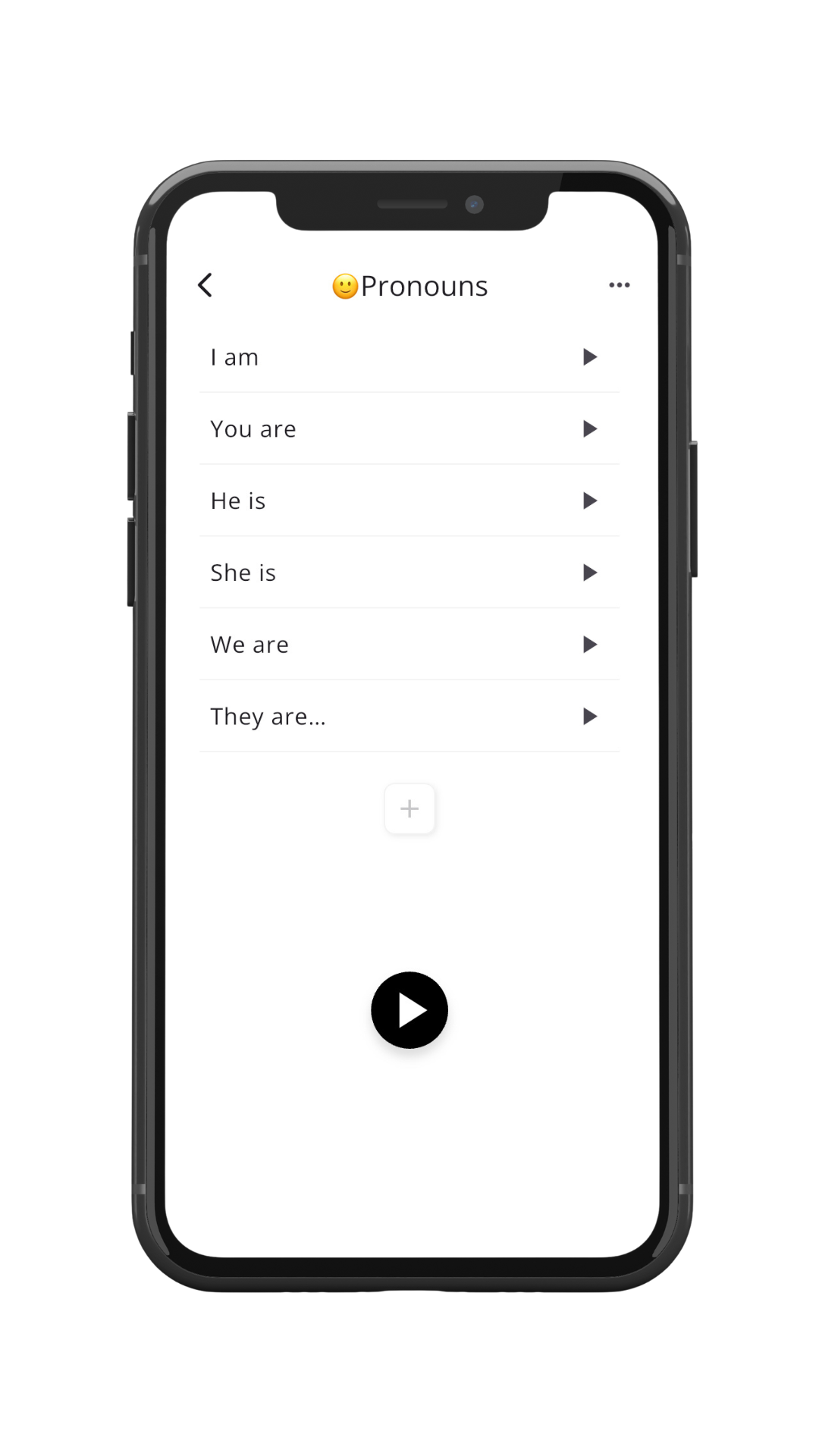
Pronouns are the backbone of conversation. Once you know “I, you, he, she, we, they,” you can start attaching verbs to construct sentences.
I am…
You are…
He is…
She is…
We are…
They are…
Verbs are like the engine of every sentence. Once you can say I am, I have, I want, I need, I go, you already have the power to express 80% of your daily life. Once you add the tenses: past and future, you'll be telling stories!
💡 Tip: You can decide how simple or complex to make this.
To be:
I am tired.
I was tired.
I will be ready soon.
To have:
I have a question.
We had lunch.
Tomorrow, I will have more time.
To go:
I go to the market.We went to the beach.Next week we will go to Spain.
To want:
I want coffee.
I wanted to sleep early.
She will want to join us.
To need:
I need help.
We needed more information.
You will need your passport.
This script will definitely come in handy on your travels! You’ll use it daily in cafés, restaurants, bars, or street stalls. Here's an example below. Feel free to make this personal to your own taste.
💡 Tip: Think about what you often hear in your native language in the same situation, chances are, you’ll hear the same kinds of things, just in your target language. Add those to your script so you’re ready for both sides of the exchange. Notice below how we've added what you would likely hear as well!
Hello I'd like a coffee please
For here or to take away?
Do you want sugar or milk?
That'll be five dollars.
Have a nice day.
You too thank you!
This is one of the most common situations for travellers - buying a t-shirt, shoes, or a jacket. It’s also a great chance to practice swapping in your own size, color, or item of clothing so the script feels like yours.
💡 Tip: Again, think about what you often hear in your native language in the same situation, chances are, you’ll hear the same kinds of things, just in your target language. Add those to your script so you’re ready for both sides of the exchange.
Hello, can I help you with anything?
Let me know if you need a different size.
Do you have this in a size 42?
Do you have it in blue?
Can I try it on?
This is perfect!
I'd like to buy this, thank you.
Trains and buses are an essential part of travel. If you can ask for tickets, times, and platforms, you can get anywhere. This is a script you’ll almost certainly use, whether you’re backpacking, commuting, or just heading out for a day trip.
💡 Tip: Think about what ticket agents usually ask you in your own country. The same questions come up everywhere. Time, platform, payment, one-way vs return. Add those into your script so you’re ready for both sides of the conversation.
Hello, one ticket to [destination], please.
At what time?
Which platform is it?
Platform 3.
Is it seated?
Here is your seat number.
This is the carriage number.
Can I pay by card?
Yes, card is fine.
Thank you.
These are the little phrases that stop conversations from dying. They show you’re listening, reacting, and connecting, even if you don’t catch every word. Think of them as the “oil” that keeps a chat flowing.
💡 Tip: Social Glue is like a lifeline when you get stuck. Instead of freezing or giving up, you can use these phrases to stay in the conversation. A well-timed “Really?” or “I’m not sure I understand” keeps things moving and gives you more input to learn from
Sorry, can you say that again?
I'm learning English.
Bear with me.
Could you speak more slowly?
Let me think.
I think it’s interesting.
Really?
That’s amazing!
I’m not sure I understand.
What do you mean?
Can you write it down?
Exactly!

Once you’ve mastered the essentials - greetings, food, shopping, travel, the next step is to build scripts around your real life. The more personal and relevant they are, the more likely they’ll stick.
💡 Tip: Think about the places you actually spend time, the hobbies you talk about, or the situations you’ll likely face. Write those into scripts, even just 3–5 lines each, and rehearse them out loud.
Possible Scripts to Try:
Don’t just read these scripts. Speak them out loud over and over until they feel natural. Use your own words. Your usual drink order, your shoe size, your favourite colour.
As you get more comfortable, you can make your scripts as simple or as complex as you like. Start with short lines, then add details, opinions, and emotions.
And this is where you can really get creative. The sky’s the limit with what you can rehearse. From your favourite sport to the small phrases you overhear in daily life. Start collecting new lines as you go. Pay attention to how people around you speak, and imagine how it would sound in your target language.
Every new line you add makes the language feel more like yours.